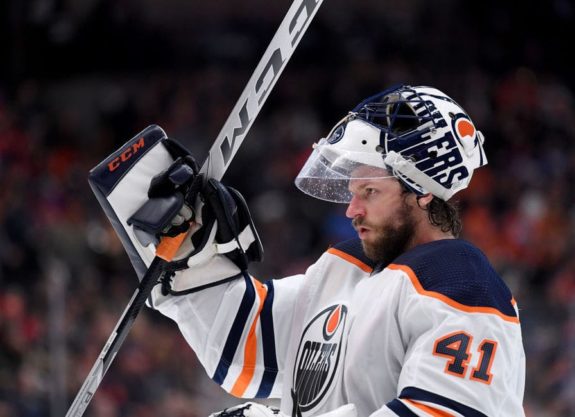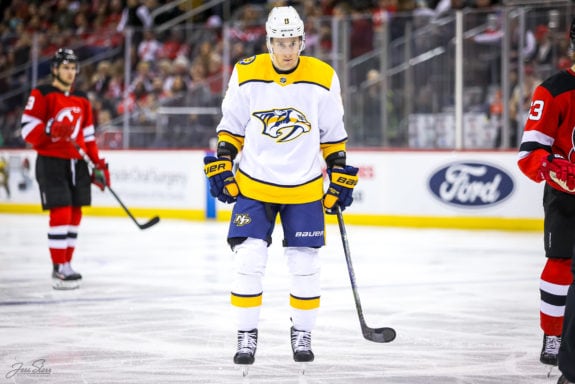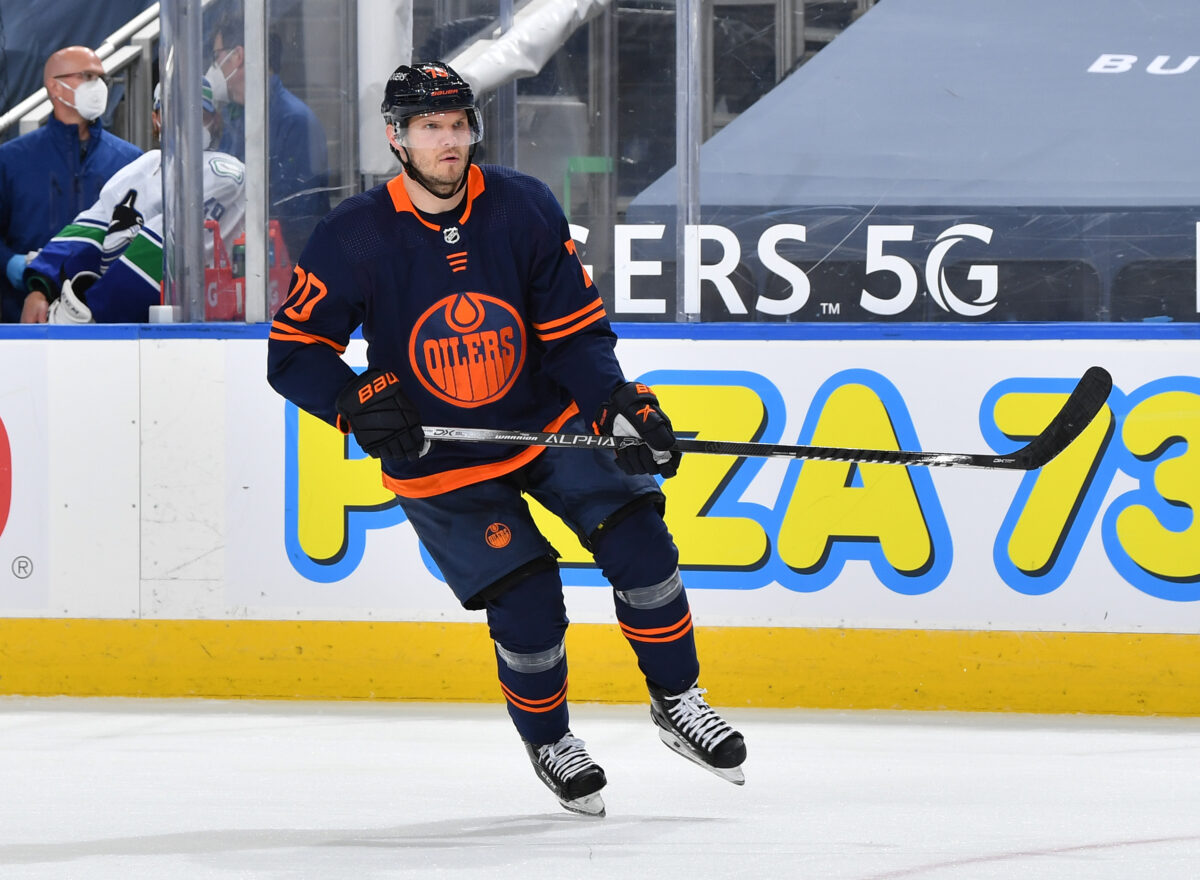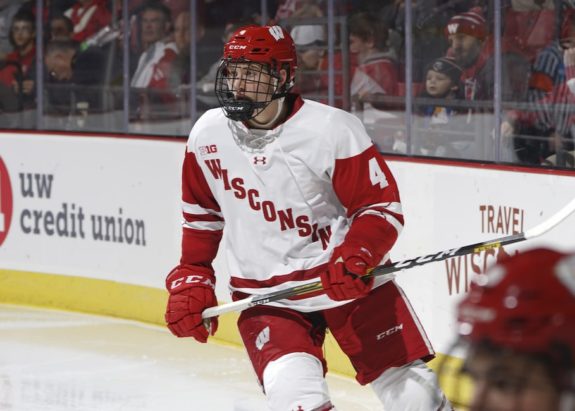Technically, the Edmonton Oilers made it one round further in the 2021 Stanley Cup Playoffs than they did last season. While that provides little solace to those who expected a deep run in a relatively weak Scotiabank North Division, it’s still true. Last summer, each team without a preliminary round bye needed 19 wins to hoist the Cup, and the Oilers only ticked a single game off that list. Last week, and yes it was only a week ago that the postseason began in Canada, they were 16 wins away from the championship, but they exited the first round after four straight losses to the Winnipeg Jets.
There will be plenty to unpack from this shortened season. Though the Oilers escaped relatively unscathed by COVID-19, they still felt the effects of the positive cases on the Montreal Canadiens and Vancouver Canucks. Their schedule was thrown several curveballs, from tightly packed to long delays between games. Captain Connor McDavid scored at a pace not seen in decades. Their goaltending situation worked out in a way no one predicted. Now, after their playoff exit, we can look back on 2020-21 and grade the players, coaches, and, in this particular case, general manager Ken Holland.
Holland’s Summer Signings Looked Good Initially
Many praised the changes Holland made to the roster last offseason. His depth signings seemed, at the surface, to finally provide the team’s stars with a decent supporting cast. It was even suggested the team would be amongst the league’s best and would fight for the division title. But every gambler knows that not every bet is a winner, and it was no different for the Oilers GM.
Latest Oilers Content:
- NHL Rumors: Islanders, Oilers, Capitals, Canucks
- 2022 NHL Free Agency: Best Restricted Free Agents Remaining
- Oilers Don’t Need Patrick Kane, They Need Another Defenseman
- Edmonton Oilers: 4 Things to Know About Mattias Janmark
- Oilers Have 2 Offseason Trades Left to Make
Several signings worked out well. Goaltender Mike Smith wasn’t anyone’s first choice, but he put in a fantastic performance this season and deserves consideration for both the Vezina Trophy and as the comeback player of the year. Winger Jesse Puljujärvi returned from Finland and surprised all but his most ardent supporters with his consistent play. It seems the fourth-overall pick from 2016 isn’t a bust after all, and if he continues to sharpen his skills, he has the potential to be a key piece in future postseason runs. Tyson Barrie, whose true value has been hotly debated, undeniably brought the combination of a club-friendly contract and league-leading (amongst defensemen) point totals, and so he should count as one of Holland’s wins.

Other additions were less successful. Kyle Turris – added for centre depth and scoring – struggled to produce and prevent scoring. He joined the taxi squad down the stretch and made zero impact in the postseason. The second year tacked onto his contract now looks like a mistake, and there’s a chance he will be bought out for the second time in a single calendar year. Turris counts against Holland’s record. Dominik Kahun had a better season than Turris, but one has to think the Oilers were expecting more from a player who scored 206 points alongside Leon Draisaitl in youth hockey. Kahun’s nine goals are close to his previous production, but his assists were significantly lower. You can blame linemates or ice time or even the lack of a preseason, but, ultimately, Kahun showed why NHL clubs moved on from him in the past. Edmonton will likely do the same.

Defenseman Slater Koekkoek’s injury prevented a full season’s analysis but both his plus/minus and advanced statistics suggest he wasn’t great in his 18 games as an Oiler. At 27 and 6-foot-2, he is both younger and bigger than teammate Kris Russell and might have filled that role, but Holland felt compelled to give Russell an extension through 2021-22. There might be a strategy at play here with the Seattle Kraken Expansion Draft rapidly approaching, but it seems farfetched to expect the cagey Ron Francis, general manager of the new club, to select an ageing player who has often been the whipping boy of Edmonton’s analytics crowd over Caleb Jones or maybe Oscar Klefbom.
Grade: B-
Trade Deadline Was an Utter Failure
There is no excuse for the way Holland handled the trade deadline. We can understand how his 2019-20 misfires on two former Detroit Red Wings, Andreas Athanasiou and Mike Green, caused him to hesitate, but the team needed help to compete in the playoffs. Nor can the cap be an excuse when teams like the Tampa Bay Lightning and Toronto Maple Leafs bent and twisted their way into cap “compliance” like contortionists at a circus without giving up significant pieces to improve their roster at the deadline. Holland needed to think outside the box but did his best ‘Jack’ impression and remained inside that box.
Dmitri Kulikov played the role he was assigned but added little more than defensive depth in 13 games with the club. A simple game like his should have been a long-term asset on the Oilers’ middle pairing but, as the only addition to the roster this season, it wasn’t enough. That’s not a shot at Kulikov, but Holland. The team was sorely lacking forward scoring depth, and several players were available.

Many in Edmonton wanted a return of former first overall pick Taylor Hall from the Buffalo Sabres, who has already scored some important playoff goals for the Boston Bruins, but beyond him, players like Mike Hoffman or Alex Iafallo were said to be available. Rather than pay whatever the asking price might have been, Holland bet on his existing roster, despite its imperfections, and the result was a swift exit versus a team that most would agree isn’t going to challenge for the Cup.
Grade: F
Draft Day
The best teams in the NHL consistently find players in the clouded middle and bottom rounds of the NHL Entry Draft to fill their lineup with cheap, skilled players and avoid the temptation to fill roster holes through free agency, where players worth having are usually overpaid. Holland’s selections have raised eyebrows in the past, and 2020 was no exception. He selected Dylan Holloway in the first round, who’d scored eight goals the season before – although the angry whispers died down during his second season with the Wisconsin Badgers. Second-round selection Carter Savoie also had a strong season, but he, and the rest of the picks from last fall, won’t be in the NHL any time soon, so judgement must wait.

Like Philip Broberg from 2019, Holland saw potential in Holloway that others seem to have missed, selecting an imperfect player who was ready to take a step forward. Over the coming seasons, we will see if passing on Kaiden Guhle, Dawson Mercer or Rodian Amirov – all ranked higher by NHL central scouting – was the right decision. And if Holland was clutching a piece of paper that said “Dylan Holloway, no matter what!,” was there an opportunity to move back while still drafting the player he wanted? Holland, who admits he did not attempt to creatively wrangle his cap situation, might not have bothered looking into that either, but Edmonton was low on draft picks, and it should have been a consideration.
Grade: B
Overall, Hollands average grade is C. He didn’t do a horrible job, but he certainly isn’t in the running for manager of the year. For $5 million per season, the Oilers and their fans deserve more. The best players in the world are on this roster. They were in a weak division and would have faced flawed teams in both Rounds 1 and 2, which was clear before the deadline. This was the season to go all-in and the failure to do so should shorten Holland’s tenure as GM. Then again, the organization doesn’t have a history of holding management’s heels to the fire when things go wrong. As we now look to a difficult offseason, let’s hope for something better in 2021-22.